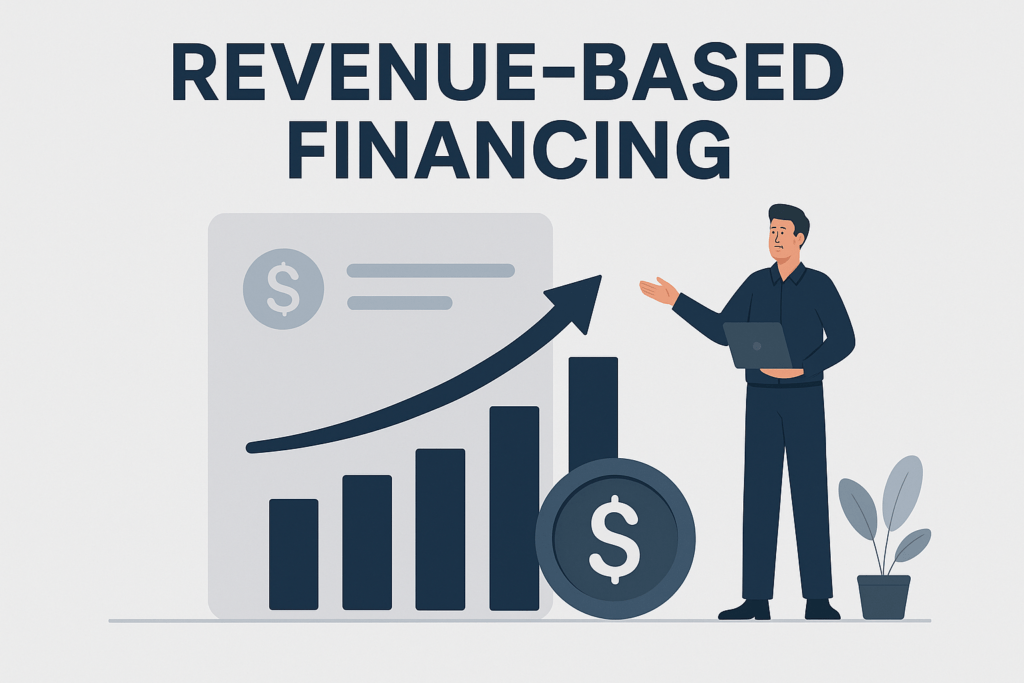Phone:
(844) 462-4730
Business Hours
Mon-Fri: 9AM - 6PM
Address
97 Newkirk Street, 3rd Floor
Jersey City, NJ 07306

Phone:
(844) 462-4730
Business Hours
Mon-Fri: 9AM - 6PM
Address
97 Newkirk Street, 3rd Floor
Jersey City, NJ 07306

Navigating the world of business funding can feel like learning a new language. If you’ve ever explored fast, flexible funding options, chances are you’ve heard about revenue-based financing, also known as a merchant cash advance (MCA). But while most blogs explain what an MCA is, few ever dive into the real insider knowledge you need to negotiate smarter, protect your cash flow, and actually leverage this funding to your advantage.
Today, we’re giving you the inside scoop — the tips and tricks that seasoned business owners and brokers know, but few openly share.
(If you need a full breakdown on what an MCA is and how it works, check out our complete guide to Merchant Cash Advances on AMP Advance.)
Revenue-based financing isn’t “one size fits all”—terms can and should be negotiated.
MCA funders focus more on cash flow than credit scores.
Industry checks through sources like DataMerch and court records impact your offers.
Knowing your “purchase rate” and “payback multiple” puts you in the driver’s seat.
Certain industries get better MCA terms—know if you’re one of them.
Unlike traditional banks, MCA companies often build negotiation room into their initial offers.
Here’s the play:
Always ask if the “factor rate” or “retrieval rate” can be lowered.
Push for longer terms if you’re in a strong cash position.
Ask about “prepayment discounts.” Some MCA providers will offer a discount if you pay the balance off early.
💡Pro Tip: Always get multiple offers to create leverage—and let each provider know you’re shopping.
Most business owners stress over their credit scores when applying for funding. With MCAs, cash flow is king.
Funders will typically review your:
Last 3 to 6 months of bank statements
Average daily balance
Number of negative days (days when your account dipped below zero)
Seasonality or trends in your deposits
If your cash flow is healthy, you can often negotiate better rates even if your credit is average or poor.
💡Pro Tip: Learn more about our small business funding solutions if you’re building your financing strategy.
Behind the scenes, MCA companies perform industry-specific risk assessments. They often use private databases like DataMerch and public court records to:
Check for prior funding defaults
Review any history of bankruptcies or lawsuits
Evaluate the overall risk level of your business sector
If you know you’re clean: Tell them early. It speeds up underwriting and improves your leverage.
If you have history: Be upfront. Some funders specialize in “high-risk” industries but you’ll need to position yourself carefully.
The two most important numbers you need to watch:
Factor Rate: Example, 1.35 means you pay back 35% more than you borrowed.
Purchase Rate: The daily percentage of your credit card sales (or fixed ACH withdrawal), also known as specified purchase percentage, used to pay back the advance.
Closing Costs: Every loan in financing typically has closing costs on top of the rates, from auto loans to home mortgages. In MCA, typically funders add 1-5% of the principal amount to cover risk and operating costs. These costs are usually reduced from the principal funding amount. For example, if you are approved for $10,000 but there is a 3% closing costs, your net amount funded to your account will be $9,700.
Funders will sometimes “bury” higher factor rates with attractive lower purchase rates. Always add your total costs to calculate your true payback multiple before accepting.
💡 Pro Tip: If your payback is more than 1.49x your funded amount, you’re likely overpaying—use our MCA Calculator blog to compare true costs before you commit.
While every business is different, MCA funders often prefer businesses with steady, predictable revenue.
Industries that typically get better MCA terms:
Automotive repair shops (steady service demand)
Restaurants and food service businesses (consistent daily sales)
Retail stores (especially with strong POS history)
Medical and dental practices (insurance-backed revenue)
Construction contractors (especially those with government or large private contracts)
If you’re in one of these industries, you’re sitting in the driver’s seat. Make sure you leverage that advantage when negotiating your offer!
💡Pro Tip: Running an auto repair shop or dealership? Learn how our auto business financing options can complement your MCA strategy.
Auto repair shops
Restaurants and food service
Medical and dental practices
Retail stores
Construction contractors
AMP Advance specializes in these industries which generally show stable, predictable cash flow—making them ideal candidates for MCAs.
Merchant cash advances can be a powerful tool—or a heavy burden—depending on how you navigate them.
Insiders know:
Always negotiate terms
Understand your cash flow metrics
Know your industry risk level
Watch for hidden costs
If you want true insider help, reach out to the experts at AMP Advance. We’ll help you structure smarter funding solutions that work with your business—not against it.
Ready to level up your business financing strategy? Let’s Talk.
Taking the first offer without comparing rates or terms—always negotiate and get multiple quotes.
Yes, MCA companies require at least 3–6 months of business bank statements showing revenue—but pre-revenue startups without cash flow will not qualify.
It’s possible, but not always recommended—consolidation loans often have better terms. Ask us about alternative options if that’s your goal.
Daily cash flow patterns are more important than monthly totals in MCA underwriting.
At AMP Advance, we specialize in revenue-based financing solutions for business owners with less-than-perfect credit. Our streamlined application process offers fast, hassle-free access to multiple funding options—no hard credit pull required. Take control of your cash flow and fuel your next stage of growth. Apply with AMP Advance today and get the revenue-based support your business needs to thrive!
Address
97 Newkirk Street, 3rd Floor
Jersey City, NJ 07306

